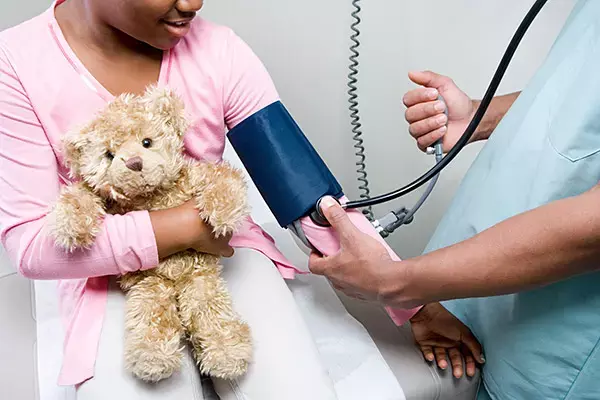- Home
- Medical news & Guidelines
- Anesthesiology
- Cardiology and CTVS
- Critical Care
- Dentistry
- Dermatology
- Diabetes and Endocrinology
- ENT
- Gastroenterology
- Medicine
- Nephrology
- Neurology
- Obstretics-Gynaecology
- Oncology
- Ophthalmology
- Orthopaedics
- Pediatrics-Neonatology
- Psychiatry
- Pulmonology
- Radiology
- Surgery
- Urology
- Laboratory Medicine
- Diet
- Nursing
- Paramedical
- Physiotherapy
- Health news
- Fact Check
- Bone Health Fact Check
- Brain Health Fact Check
- Cancer Related Fact Check
- Child Care Fact Check
- Dental and oral health fact check
- Diabetes and metabolic health fact check
- Diet and Nutrition Fact Check
- Eye and ENT Care Fact Check
- Fitness fact check
- Gut health fact check
- Heart health fact check
- Kidney health fact check
- Medical education fact check
- Men's health fact check
- Respiratory fact check
- Skin and hair care fact check
- Vaccine and Immunization fact check
- Women's health fact check
- AYUSH
- State News
- Andaman and Nicobar Islands
- Andhra Pradesh
- Arunachal Pradesh
- Assam
- Bihar
- Chandigarh
- Chattisgarh
- Dadra and Nagar Haveli
- Daman and Diu
- Delhi
- Goa
- Gujarat
- Haryana
- Himachal Pradesh
- Jammu & Kashmir
- Jharkhand
- Karnataka
- Kerala
- Ladakh
- Lakshadweep
- Madhya Pradesh
- Maharashtra
- Manipur
- Meghalaya
- Mizoram
- Nagaland
- Odisha
- Puducherry
- Punjab
- Rajasthan
- Sikkim
- Tamil Nadu
- Telangana
- Tripura
- Uttar Pradesh
- Uttrakhand
- West Bengal
- Medical Education
- Industry
Pediatric hypertension associated with long-term cardiovascular events: JAMA

A recent study from Ontario, Canada illuminated the long-term risks associated with childhood hypertension. This comprehensive study underlines the pressing need for increased awareness and effective management of hypertension in children. The major findings of this study were published in the recent issue of Journal of American Medical Association.
Hypertension was once considered primarily an affliction of adulthood is increasingly affecting children with its estimates suggesting to 6% effect on all children and which is still on the rise. Despite this trend, the evidence that links childhood hypertension to adverse cardiovascular outcomes was lacking, which leads to underdiagnosis and undertreatment.
This population-based, retrospective, matched cohort analysis meticulously examined the data from 1996 to 2022 and encompassed all children who were aged 3 to 18 years in Ontario. The research identified children with incident hypertension using validated case definitions derived from diagnostic and physician billing claims. Following this, they matched them with controls without hypertension based on various parameters including age, sex, birth weight, maternal gestational hypertension and prior comorbidities.
Over a median follow-up period of 13.6 years, the children who were diagnosed with hypertension expressed a significantly higher risk of major adverse cardiac events (MACE) when compared to their non-hypertensive counterparts. These events included cardiovascular death, stroke, hospitalization for myocardial infarction or unstable angina, coronary intervention and congestive heart failure.
The incidence of MACE was significantly higher among the children with hypertension with a rate of 4.6 per 1000 person-years when compared to 2.2 per 1000 person-years in controls. This translates to a more than twofold increased risk of MACE among the children with hypertension which emphasizes the profound impact of hypertension on cardiovascular health even from a young age.
While prior comorbidities such as malignancy, congenital heart disease and diabetes were uncommon in both cohorts, hypertension remained a significant independent risk factor for adverse cardiovascular outcomes. The implications of these findings underline the critical importance of early detection, regular monitoring and effective management of hypertension in children to reduce the long-term risks of cardiovascular disease in adulthood. Overall, clinicians can potentially avert a substantial burden of cardiovascular morbidity and mortality in the future by addressing hypertension in childhood.
Source:
Robinson, C. H., Hussain, J., Jeyakumar, N., Smith, G., Birken, C. S., Dart, A., Dionne, J., Garg, A., Kandasamy, S., Karam, S., Marjerrison, S., South, A. M., Thabane, L., Wahi, G., Zappitelli, M., & Chanchlani, R. (2024). Long-Term Cardiovascular Outcomes in Children and Adolescents With Hypertension. In JAMA Pediatrics. American Medical Association (AMA). https://doi.org/10.1001/jamapediatrics.2024.1543
Neuroscience Masters graduate
Jacinthlyn Sylvia, a Neuroscience Master's graduate from Chennai has worked extensively in deciphering the neurobiology of cognition and motor control in aging. She also has spread-out exposure to Neurosurgery from her Bachelor’s. She is currently involved in active Neuro-Oncology research. She is an upcoming neuroscientist with a fiery passion for writing. Her news cover at Medical Dialogues feature recent discoveries and updates from the healthcare and biomedical research fields. She can be reached at editorial@medicaldialogues.in
Dr Kamal Kant Kohli-MBBS, DTCD- a chest specialist with more than 30 years of practice and a flair for writing clinical articles, Dr Kamal Kant Kohli joined Medical Dialogues as a Chief Editor of Medical News. Besides writing articles, as an editor, he proofreads and verifies all the medical content published on Medical Dialogues including those coming from journals, studies,medical conferences,guidelines etc. Email: drkohli@medicaldialogues.in. Contact no. 011-43720751


